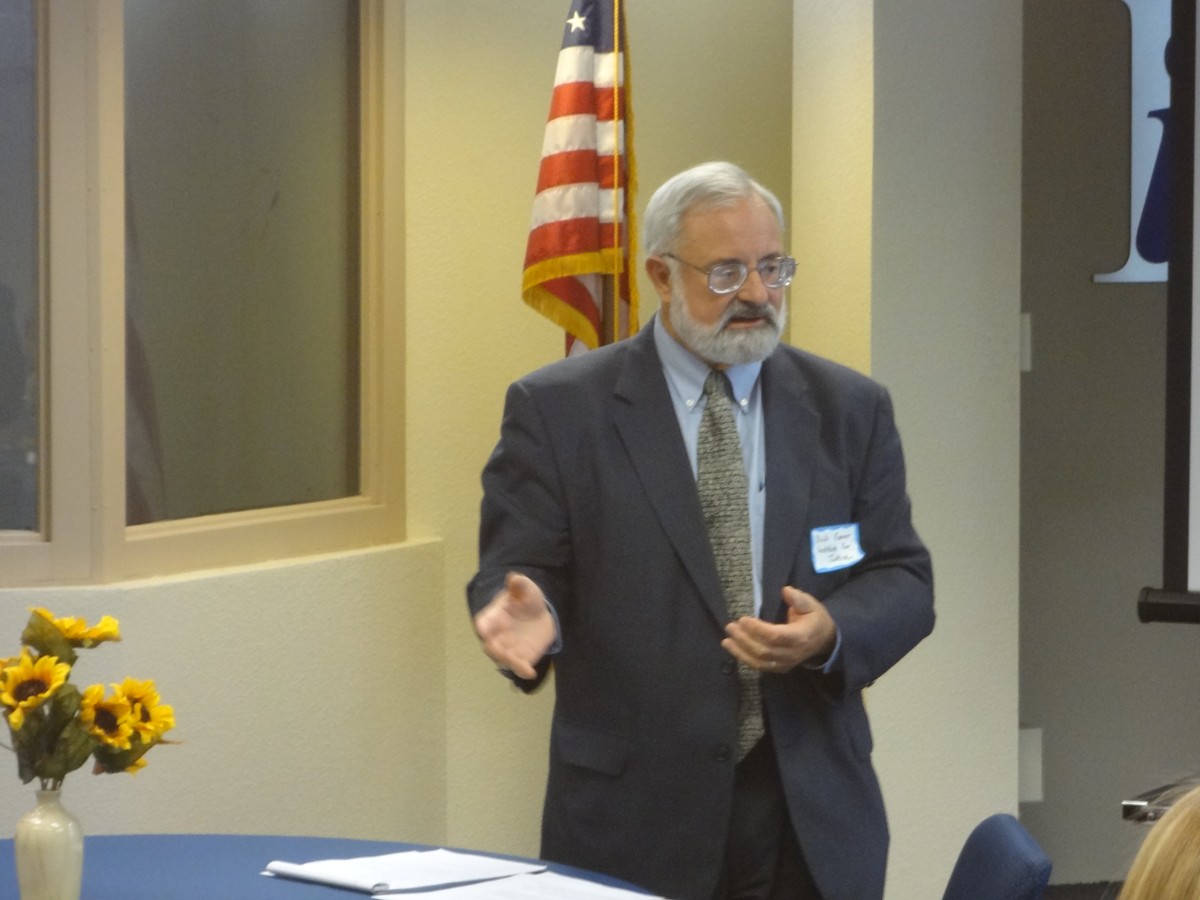On Tuesday, September 17, the Independence Institute’s Education Policy Center convened private school leaders, scholarship organizations, and policymakers to discuss an exciting program idea for Colorado students. Institute for Justice senior attorney Dick Komer headlined morning and luncheon events with presentations on the legal challenges and opportunities associated with establishing a K-12 scholarship tax credit program.

Institute for Justice senior attorney Dick Komer addresses legal questions surrounding K-12 scholarship tax credits at a September 17 event in the Independence Institute's Denver Freedom Embassy
The Education Policy Center is leading an effort to educate Coloradans about the benefit of offering state income tax credits for donations to non-profit organizations that grant private tuition scholarships to K-12 students. The Colorado Kids Win website features two videos showing how scholarships give students a chance to succeed and how tax credits would be an all-around win by creating more incentive for scholarship donations.
An expert on state constitutional Blaine Amendments, Komer explained that programs expanding school choice through tax credits have received fewer legal challenges and have been nearly unanimously upheld in courts. He argued that tax credits and tax deductions (which Colorado currently offers for donations to nonprofit organizations) are different only in degree, not in kind. Komer has represented families in various school choice cases, and is currently working to defend New Hampshire’s Corporate Education Tax Credit.
Senior education policy analyst Ben DeGrow proposed specific parameters for a Colorado scholarship tax credit program in a 2013 issue paper. Center director Pam Benigno and Hispanic education coordinator Raaki Garcia-Ulam have been presenting the idea to English- and Spanish-speaking audiences, respectively.
Thirteen states currently operate a total of 16 different K-12 scholarship tax credit programs–first started in Arizona (1997) and most recently enacted in Alabama and South Carolina (2013).







